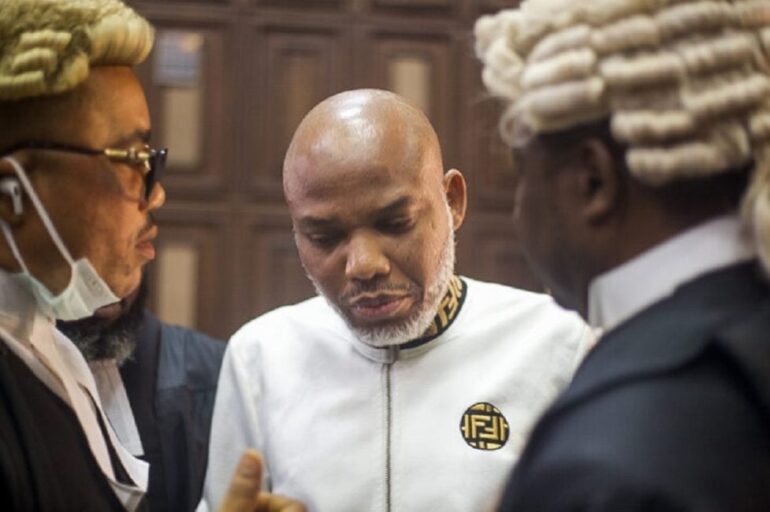The South-East caucus of the House of Representatives has urged President Bola Tinubu to grant a presidential pardon to Nnamdi Kanu, the convicted leader of the Indigenous People of Biafra (IPOB).
The lawmakers said that releasing Kanu through executive clemency would create an opportunity for deeper engagement among the Federal Government, elected officials, and community stakeholders, ultimately paving the way for long-term peace in the region.
In a statement issued on Monday after a caucus meeting, the legislators noted that Nigeria has, at critical moments, relied on presidential magnanimity to heal national divisions and strengthen peace.
“Indeed, the framers of our Constitution envisioned Section 175 precisely for situations where the strict application of the law may not be sufficient to address complex national issues that require political solutions through Presidential discretion,” they said.
They added that an act of clemency “would resonate deeply across the country as a symbol of inclusiveness, fairness, and leadership committed to healing rather than division,” and would reaffirm that meaningful dialogue remains possible even in difficult circumstances.
According to the caucus, Kanu’s release would open the door for broader consultations aimed at charting a sustainable and peaceful future for the South-East. “In the spirit of national healing, unity, and responsible leadership, we respectfully urge the President to consider this request as an investment in Nigeria’s long-term peace and cohesion,” they appealed.
‘Tension in the South-East’
The lawmakers expressed concern that Kanu’s continued detention has significantly fuelled tension and agitation in the South-East, despite repeated appeals for calm. They said the region’s atmosphere “remains strained,” and that a presidential act of mercy could help de-escalate tensions, restore normalcy, and reduce the cycle of security operations and civil resistance.
They noted that beyond its political implications, the issue has taken an emotional toll on families and communities and has contributed to severe social disruptions — including closed markets, interrupted schooling, diminished commercial activity, and widespread fear.
“A political resolution would ease these burdens and allow communities to return to a dignified life,” they stated.
While affirming respect for the judiciary and the processes that led to Kanu’s conviction, the legislators said their responsibility also requires them to speak clearly when a legal case evolves into a broader national concern with serious humanitarian, economic, and security consequences.
After deliberations, the caucus resolved to “humbly appeal” to President Tinubu to consider a political and humanitarian intervention by exercising the constitutional powers under Section 175 of the 1999 Constitution to grant Kanu a pardon.
Conviction for terrorism
On November 20, 2025, the Federal High Court in Abuja sentenced Kanu to life imprisonment for terrorism. Justice James Omotosho ruled that the prosecution had proved its seven-count case beyond reasonable doubt, holding that Kanu knowingly pursued actions that endangered the lives of his own people.
“From the uncontroverted evidence of the prosecution, it is clear that the defendant carried out a preparatory act of terrorism. He had the duty to explain himself but failed to do so,” the judge said.
The court further held that Kanu’s repeated broadcasts, including threats of violence, killings, and the declaration of sit-at-home orders across the South-East, constituted acts of terrorism.
Kanu’s legal team has vowed to challenge the judgment at the Court of Appeal.


